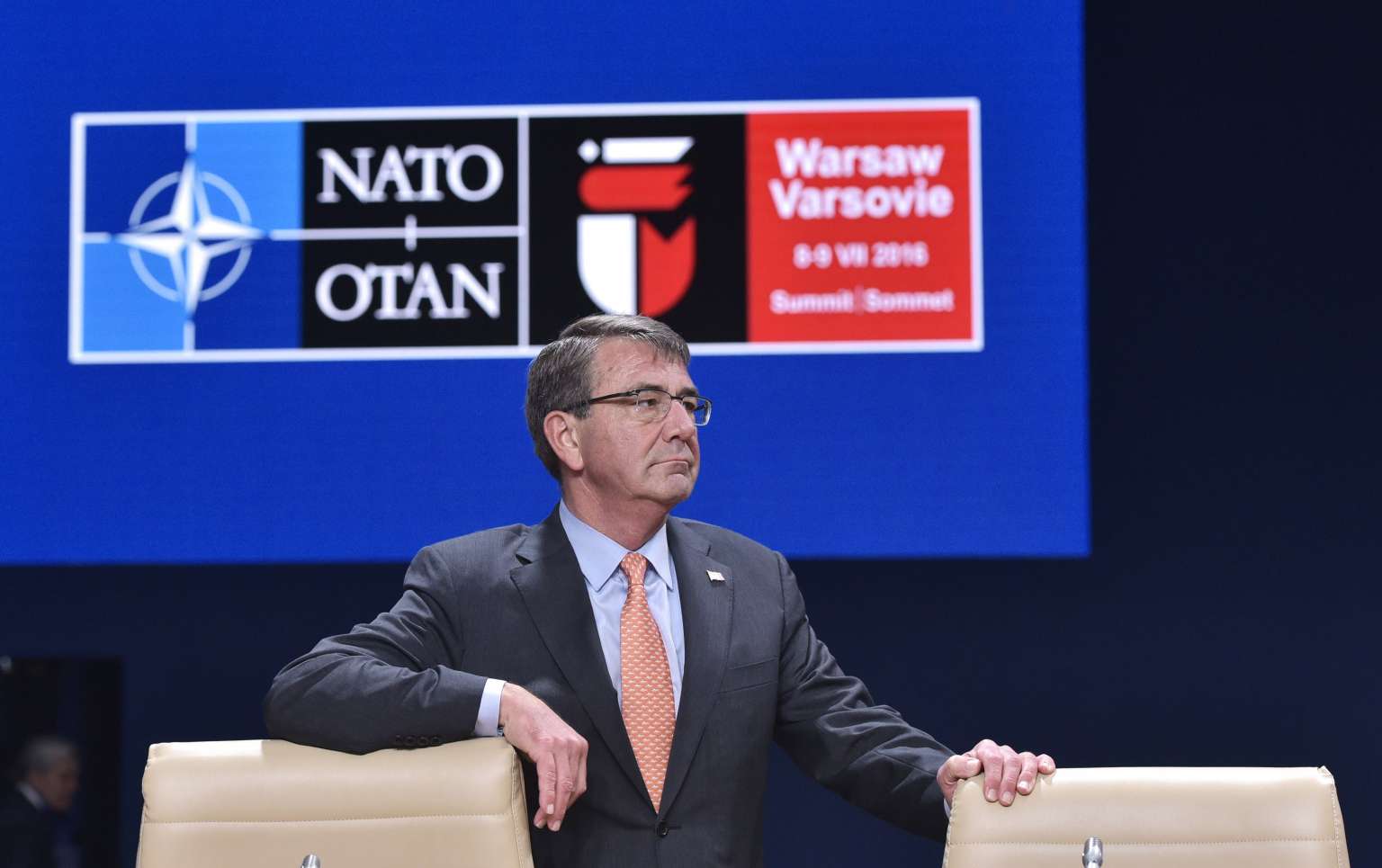US defence chief Ashton Carter in Baghdad on unannounced visit
Sign up now: Get ST's newsletters delivered to your inbox

US Defense Secretary Ashton Carter at a Nato-Ukraine Commission meeting during the second day of the NATO Summit in Warsaw on July 9, 2016.
PHOTO: AFP
Follow topic:
BAGHDAD (AFP) - Pentagon chief Ashton Carter arrived in Baghdad on Monday (July 11) for talks with Prime Minister Haider al-Abadi on the fight against the Islamic State in Iraq and Syria (ISIS) and plans to recapture Mosul from the militants.
His unannounced visit - his fourth to Iraq since beginning his job in February 2015 - comes two days after Iraqi forces captured an airbase to the south of Mosul that is seen as an important step toward the eventual battle for the country's second city, which has been under ISIS control since June 2014.
More than two years after ISIS overran large parts of Iraq as well as territory in neighbouring Syria, Mr Carter wants to highlight successes, even as the militants have fought back with devastating attacks in Iraq and abroad.
"What I'll be discussing with Prime Minister Abadi and our commanders there are the next plays in the campaign, which involve the collapse and control over Mosul," Mr Carter told reporters aboard a military plane ahead of his visit.
The ultimate goal, he added, was "the recapture of all of Iraqi territory by the Iraqi security forces, but of course Mosul is the biggest part of that."
His unannounced visit - his fourth to Iraq since beginning his job in February 2015 - comes two days after Iraqi forces captured an airbase to the south of Mosul that is seen as an important step toward the eventual battle for the country's second city, which has been under ISIS control since June 2014.
More than two years after ISIS overran large parts of Iraq as well as territory in neighbouring Syria, Mr Carter wants to highlight successes, even as the militants have fought back with devastating attacks in Iraq and abroad.
"What I'll be discussing with Prime Minister Abadi and our commanders there are the next plays in the campaign, which involve the collapse and control over Mosul," Mr Carter told reporters aboard a military plane ahead of his visit.
The ultimate goal, he added, was "the recapture of all of Iraqi territory by the Iraqi security forces, but of course Mosul is the biggest part of that."
The Qayyarah airbase, which Mr Abadi announced on Saturday had been recaptured, is located 60 km south of Mosul and can serve as a launchpad for future operations to recapture the city.
US defence officials say the campaign's first "10 plays" have been successfully completed in the US-led counter-ISIS campaign in Iraq and Syria.
These steps include the recapture of several important cities across the two countries, including Ramadi in Iraq and Al-Shadadi, a town in north-eastern Syria previously considered a strategic IS stronghold.
Mr Carter and President Barack Obama have been criticised for the pace of the campaign, which began in autumn 2014 and got off to a slow start, particularly in war-torn Syria, where the United States had few assets on the ground to provide targeting information.
US defence officials say the campaign's first "10 plays" have been successfully completed in the US-led counter-ISIS campaign in Iraq and Syria.
These steps include the recapture of several important cities across the two countries, including Ramadi in Iraq and Al-Shadadi, a town in north-eastern Syria previously considered a strategic IS stronghold.
Mr Carter and President Barack Obama have been criticised for the pace of the campaign, which began in autumn 2014 and got off to a slow start, particularly in war-torn Syria, where the United States had few assets on the ground to provide targeting information.

